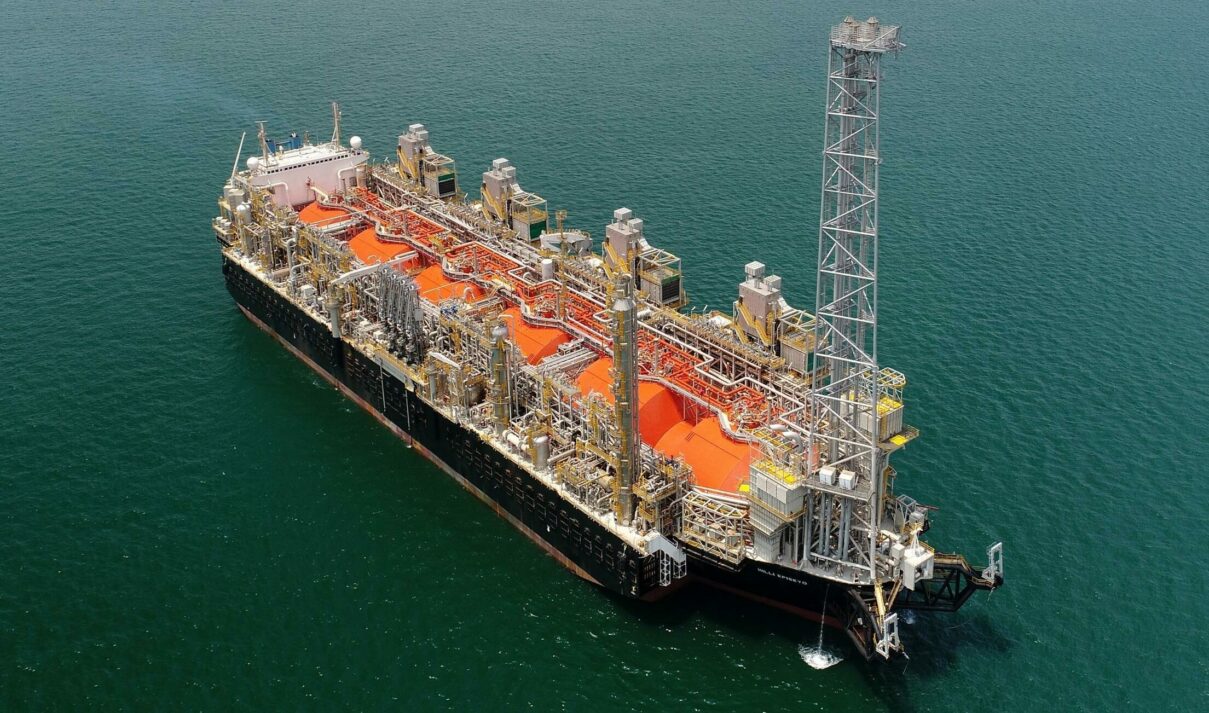European imports of Russian gas by sea hit a record high. Report Ft

Even as piped imports plummeted, Europe's seaborne imports of Russian gas grew by 40 percent in the first ten months of 2022. Here's why. The Financial Times article
Europe is importing a record amount of Russian gas by sea, highlighting how the region has not completely freed itself from Russia's dependence on the crucial fuel, even as flows through pipelines have virtually stopped. Writes the Financial Times .
Imports of Russian liquefied natural gas, typically transported on large tankers, increased by more than 40% between January and October this year, compared to the same period in 2021, highlighting Europe's difficulty in detaching itself from Moscow's gas despite Brussels' attempts to distance itself from Russian sources.
Russian LNG accounted for 16% of European seaborne imports during the period. While the total volume of 17.8 bcm represents a fraction of the 62.1 bcm of gas from pipelines over this period, it still leaves Europe exposed to Vladimir Putin's energy weaponry.
One day Putin may wake up and say, "We will no longer send LNG to Europe," forcing the region to buy from an even more expensive spot market," said Anne-Sophie Corbeau, a global research scholar at the US's Center on Global Energy Policy. Columbia University.
Russia could also divert cargoes to LNG-hungry countries like Bangladesh and Pakistan at low prices to "gain political gain" and "put pressure on Europeans," he added. “It is very important not to forget that many countries are suffering because they cannot afford LNG.”
There are no sanctions on Russian gas, given its importance for the energy security of some European countries. The Kremlin capitalized on this by gradually reducing the flow through pipelines after the invasion of Ukraine, driving up prices and fueling a cost-of-living crisis across the continent.
Gas flows through the Yamal pipeline, which runs through Poland, have been cut off since May and Russia cut flows through the Nord Stream 1 line to Germany in the summer. The pipeline then ruptured, in what some European countries believed was a deliberate act of sabotage.
Russia has also recently threatened to limit supplies to Western Europe through the only gas pipeline still connecting the region through Ukraine. According to data from the Bruegel think tank, gas from Russia has decreased by almost 80% compared to the same period last year.
To fill the gap, Europe, which last year imported 155 billion cubic meters of Russian natural gas, including LNG, has turned to the international LNG market. Between January and October, according to data from Refinitiv, Europe imported a record amount of 111 billion cubic meters of LNG globally, an increase of almost 70% compared to the previous year.
Imports from Russia in the period amounted to 17.8 bcm, an increase of 42% compared to the same period in 2021, with France, Belgium, Spain and the Netherlands absorbing almost all volumes.
Most of Russia's LNG comes from the Yamal LNG joint venture, majority-owned by Russian company Novatek, while other stakes are held by France's Total, China's CNPC and a Chinese state fund. Just under 10% of Novatek's shares are owned by the Russian state-owned company Gazprom.
In another sign of Europe's ties with Russia, a large ship carrying LNG from the Portovaya plant near Russia's southern border with Finland arrived in Greece last month, according to the data analytics firm. QuantCube satellites. This would be the first cargo of the Portovaya project, which went into operation earlier this year.
Since 2017, the country has been one of the top three sources of supply for Europe, accounting for around 20% of its total imports over the past three years. This year, according to Refinitiv, Russia was the second largest source, but its share fell to 16% despite record imports, as Europe absorbed more LNG from the US, which accounted for 42%. Qatar was the third largest LNG supplier in Europe, with a 13.7% share.
“My point of view, a bit cynical, is that if we buy LNG from Russia, it's fine. Because we are receiving from the Russians what would otherwise have been sent [elsewhere],” said Georg Zachmann, a senior fellow at Bruegel. “What Europe urgently needs is a mechanism to protect against the possibility that Russia selectively sends gas to individual buyers in Europe in order to obtain political advantages”, adding that the unity of Europe has been put hard test.
European solidarity has already been tested with the development of a rift between countries such as Spain and Greece in favor of capping gas prices, while Germany, Denmark and the Netherlands have remained skeptical of such an initiative. Hungary, meanwhile, signed a new gas deal with Gazprom in August.
If solidarity breaks down, "we could run the risk that other countries, besides Hungary, would be willing to easily accept Russian gas and that would be a big problem," Zachmann said.
This is a machine translation from Italian language of a post published on Start Magazine at the URL https://www.startmag.it/energia/europa-importazioni-gas-russo-via-mare/ on Sat, 03 Dec 2022 07:02:20 +0000.
